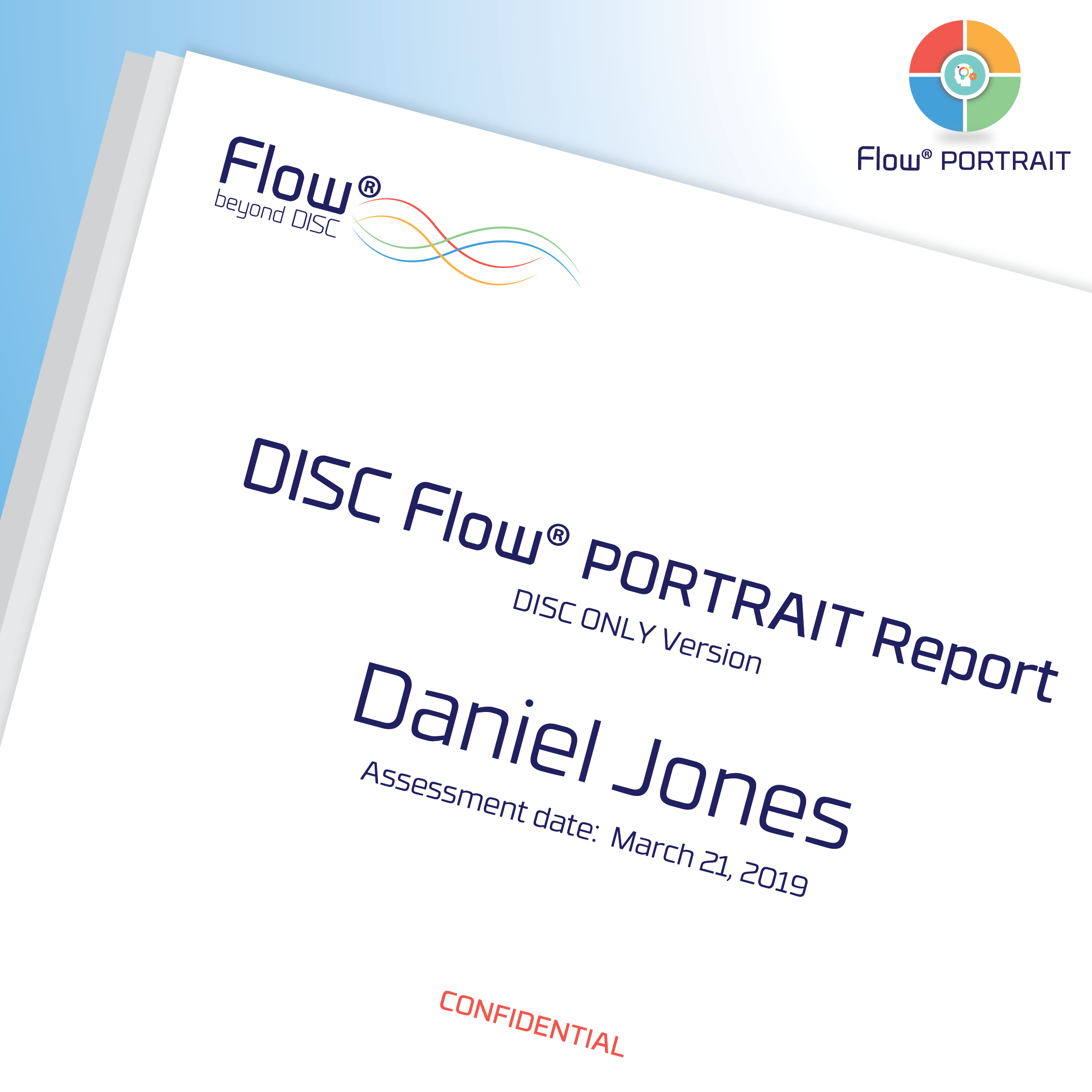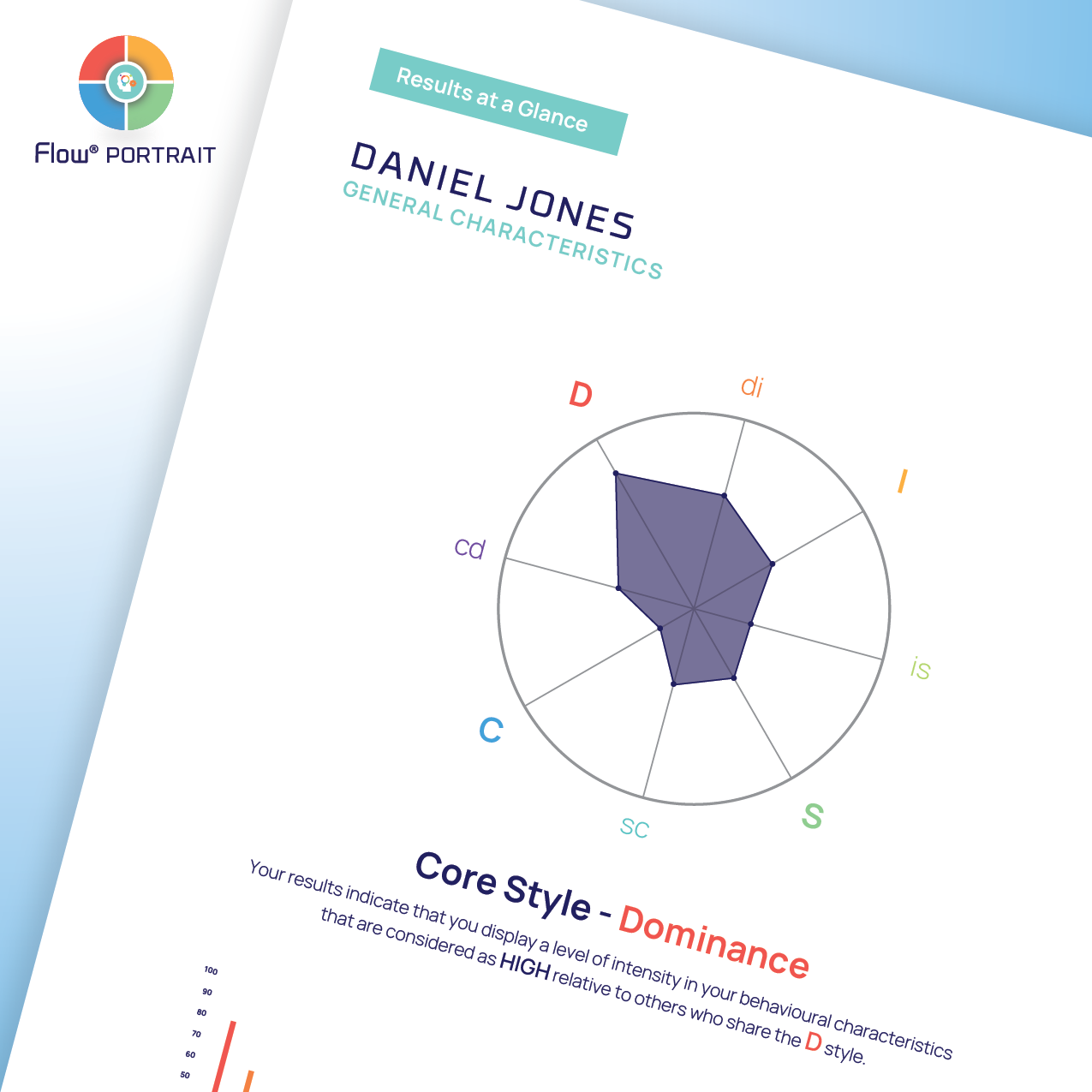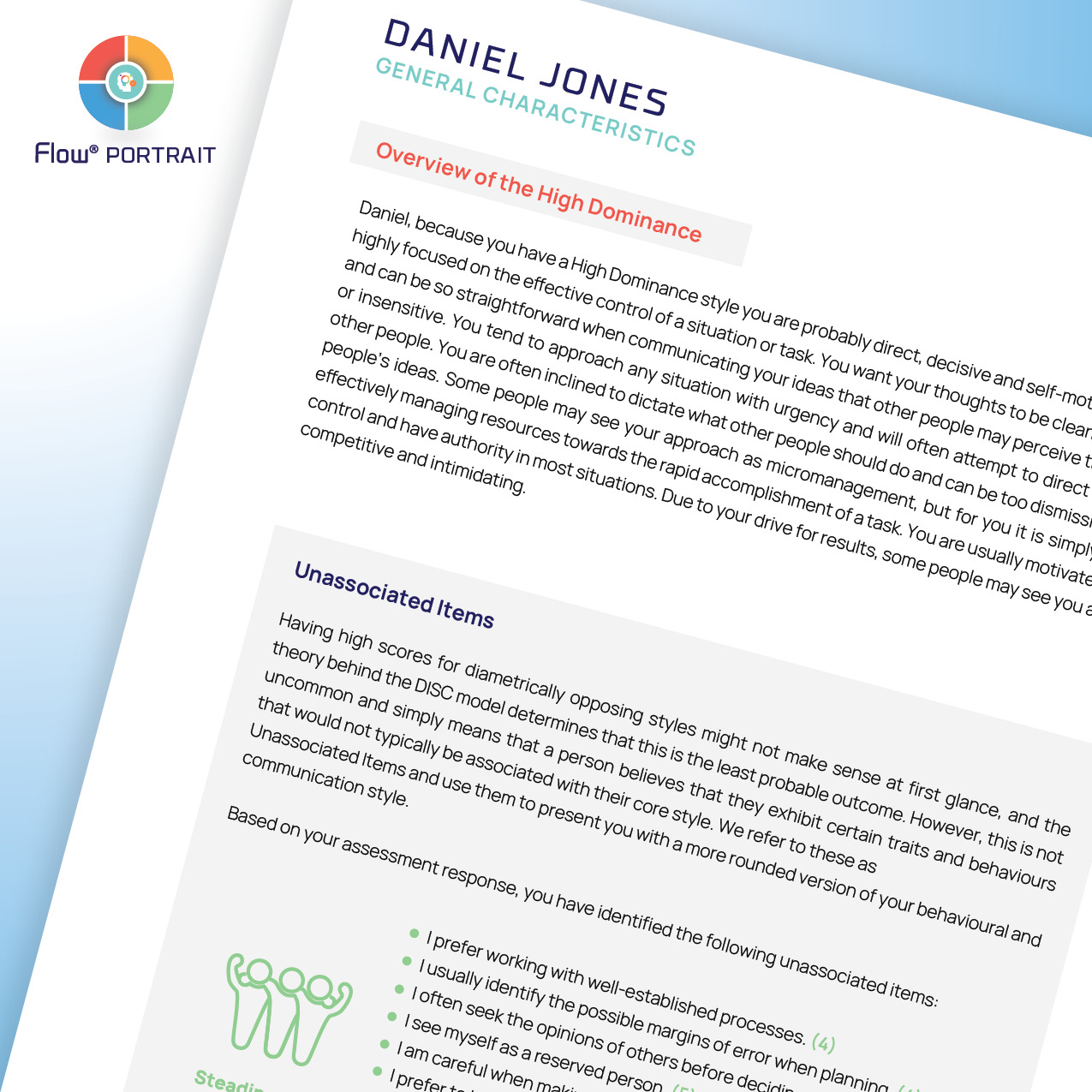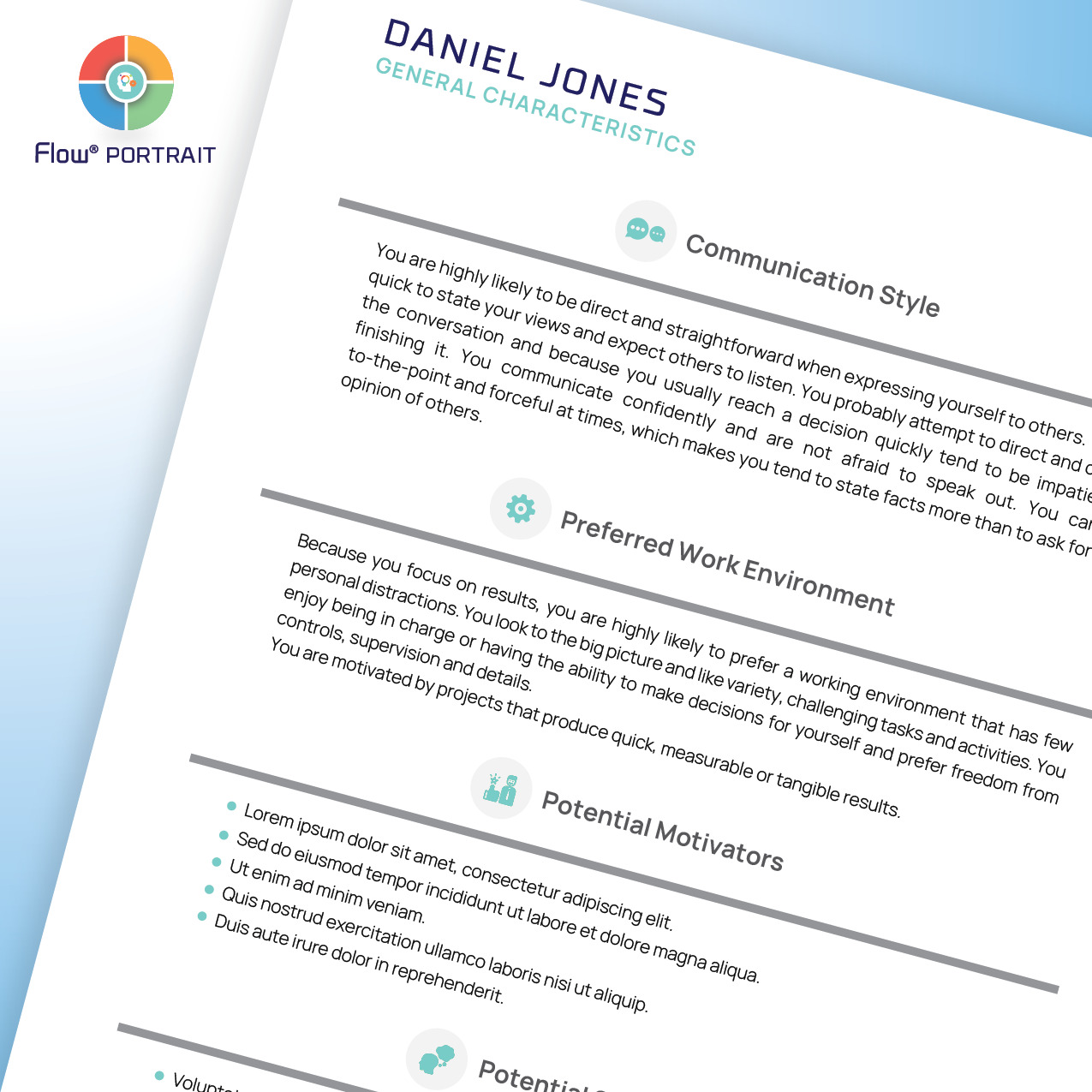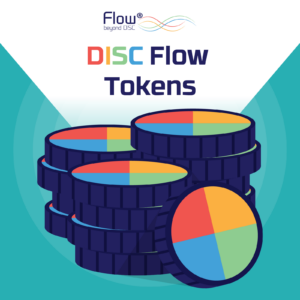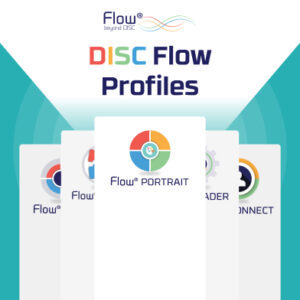DISC Flow® PORTRAIT Report
DISC Flow® PORTRAIT is a personalised report that identifies and describes the DISC only aspects of your assessment results. This report has been purposely designed to be simple to understand and easy to apply. It provides a wealth of information and insights that will help you develop your potential in both your personal and professional lives.
Tap into your behavioural strengths and build better, stronger and more productive relationships.
DISC Flow® PORTRAIT Report Features
The assessment report also provides you with a number of Personal Developmental tips that you can use to manage the behavioural tendencies associated with your DISC type.
The Personality Types Explained
There are four main personality types identified in the DISC assessment: Dominance, Influence, Steadiness, and Compliance. Each behavioural style has its own traits, skills, strengths, and limitations that can impact an individual’s career.
DOMINANCE
Assertive and ambitious, people with the Dominance personality style are often self-starters who like looking at the bigger picture. D style personalities are good problem-solvers but sometimes their controlling personalities cause them to come across as abrupt or overly independent to their team members. Good at decision-making, people with this DISC profile are happy to take risks.
Personal growth opportunities for D types:
- Learning to listen to and take advice from others
- Working on developing productive working relationships instead of working independently
- Practising communicating with team members instead of making plans alone

INFLUENCE
Good communicators and motivators, people with the Influence behaviour style tend to be energetic and enthusiastic. They are outgoing and want to be accepted and liked by their team members in the workplace. Despite being positive thinkers, I style personalities often struggle with attention to detail and organisation. They prefer an unpredictable and ever-changing day-to-day routine. Sometimes, they may avoid difficult conversations for fear of being disliked.
Personal growth opportunities for I types:
- Practising organisation and goal setting
- Listening more to team members
- Concentrating on completing tasks and not over-promising
- Learning to be comfortable with difficult conversations

STEADINESS
Dependable, patient, and even-tempered, individuals with Steadiness personality traits are great at listening and giving out advice. People with S style personalities might sometimes be reserved but when they get to know people they form deep connections and productive teams. However, they may be sensitive to criticism and dislike change. They struggle to take risks, preferring a measured and cautious approach.
Personal growth opportunities for S types:
- Becoming comfortable with change and flexibility
- Adapting communication style to be more direct
- Learning to be less cautious and conflict-avoidant in order to accomplish goals

COMPLIANCE
Organised and with a keen eye for detail, Compliance types are logical and creative. They are focused and hold themselves and their team members to high standards of work. C style personalities work best when they are intellectually stimulated. However, they may struggle to collaborate with or motivate other employees, and tend to delay making decisions until they’ve collected all the necessary information.
Personal growth opportunities for C types:
- Being open to other team members’ ideas
- Preventing attention to detail turning into perfectionism
- Building stronger working relationships for better collaboration
- Learning to take risks

Start using DISC Flow® Today
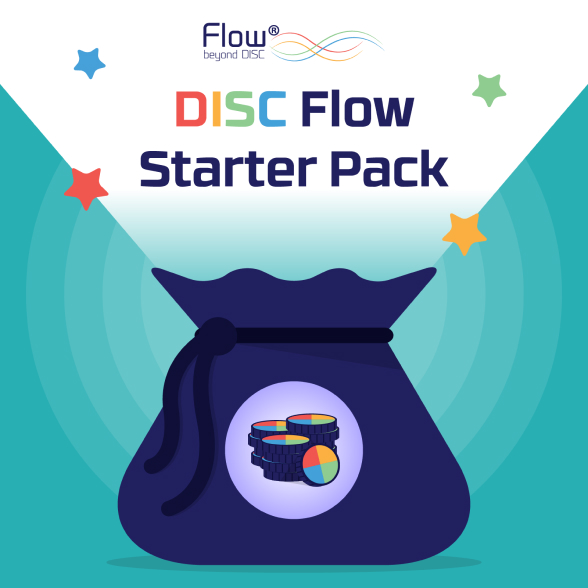
Try DISC Flow® to enhance your organisation and boost your people’s potential. If you need more than 10 reports, we recommend buying our discounted Starter Pack. For ongoing requirements, please get in touch and we can advise you on the best solution. DISC Flow® is dedicated to helping organisations solve their people problems!

